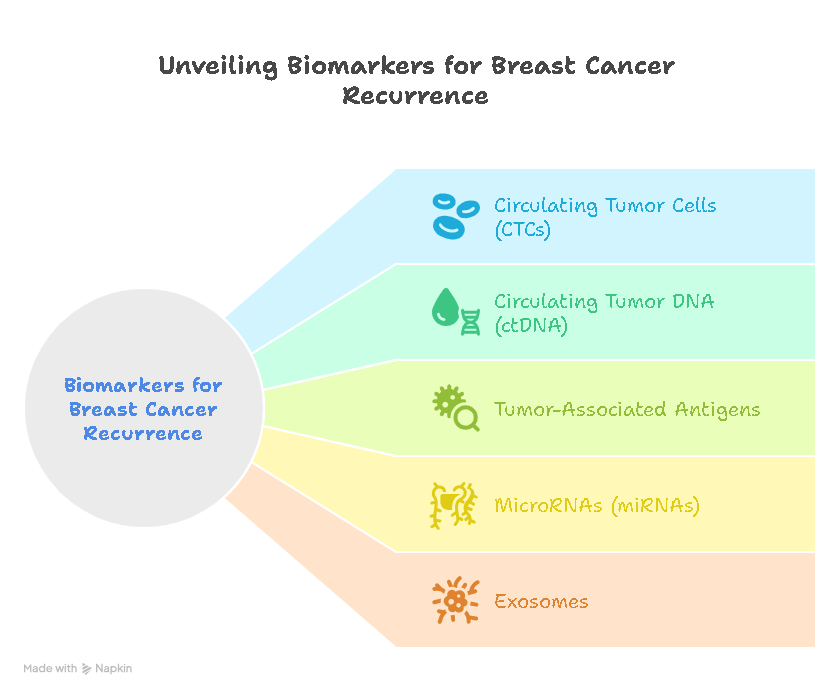Explore the evolving landscape of onco-coffee research and its potential link to triple-negative breast cancer. Uncover the latest scientific findings, ethical considerations, and societal impacts in this comprehensive exploration. Stay informed about responsible health communication and ethical research practices as we navigate the dynamic intersection of science, lifestyle, and cancer prevention and to understand Coffee and Triple-Negative Breast Cancer.
The Potential Link Between Coffee Consumption and Triple-Negative Breast Cancer
Coffee, a globally cherished beverage, has been the subject of numerous studies exploring its potential health benefits and risks. One area of interest is its association with various types of cancer, including breast cancer. Among the different subtypes of breast cancer, triple-negative breast cancer (TNBC) stands out as an aggressive and challenging form to treat. This article aims to explore the current scientific understanding of the relationship between coffee consumption and triple-negative breast cancer.
Triple-Negative Breast Cancer Overview:
Tnbc is characterized by the absence of estrogen receptor (ER), progesterone receptor (PR), and human epidermal growth factor receptor 2 (HER2) expression. This subtype accounts for about 15–25% of all breast cancer cases and is often associated with a poorer prognosis due to its aggressive nature and limited treatment options.
Coffee and its constituents:
Coffee is a complex mixture of bioactive compounds, including caffeine, chlorogenic acids, diterpenes, and antioxidants. These compounds have been studied for their potential effects on various aspects of health, ranging from neurological function to cancer risk.
Research Findings:
Several studies have investigated the link between coffee consumption and breast cancer, with mixed results. Some studies suggest a potential protective effect of coffee against certain types of breast cancer, while others show no significant association. When it comes to triple-negative breast cancer, the research is relatively limited compared to other subtypes.
A study published in the International Journal of Cancer in 2015 found an inverse association between coffee consumption and the risk of ER-negative, PR-negative, and HER2-negative breast cancer, which includes triple-negative breast cancer. The study suggested that regular coffee drinkers may have a lower risk of developing this aggressive breast cancer subtype.
However, it’s important to note that conflicting findings exist. Another study published in the journal Breast Cancer Research and Treatment in 2019 did not find a significant association between coffee consumption and triple-negative breast cancer risk.
Potential Mechanisms:
The mechanisms underlying the potential association between coffee and triple-negative breast cancer risk are not fully understood. Some researchers hypothesize that the antioxidants in coffee may play a role in reducing oxidative stress and inflammation, both of which are implicated in cancer development. Additionally, certain compounds in coffee may influence hormone metabolism, potentially impacting hormone receptor-negative breast cancers like triple-negative breast cancer.
Conclusion:
While research on the relationship between coffee consumption and triple-negative breast cancer is ongoing, it is essential to approach the findings with caution. Factors such as individual variations, lifestyle, and genetic predispositions can influence cancer risk. It is always advisable for individuals to maintain a balanced and healthy lifestyle, including a well-rounded diet, regular exercise, and routine medical check-ups.
As the scientific community continues to explore the intricate connections between lifestyle factors and cancer risk, including the potential role of coffee, individuals should stay informed about the latest research findings. In the meantime, moderation and a mindful approach to coffee consumption remain key, and consulting with healthcare professionals for personalized advice is crucial for maintaining overall health and well-being.
Exploring the nuances of the relationship between coffee and triple-negative breast cancer requires a deeper dive into the available research and ongoing investigations. The conflicting findings in existing studies underscore the complexity of this topic and highlight the need for more comprehensive and targeted research to draw definitive conclusions.
One aspect to consider is the varying methodologies employed in different studies. Factors such as sample size, participant demographics, and the methods of assessing coffee consumption can contribute to discrepancies in research outcomes. Additionally, lifestyle factors, dietary choices, and genetic predispositions can influence the interplay between coffee consumption and cancer risk, making it challenging to isolate the specific impact of coffee on triple-negative breast cancer.
In recent years, researchers have also focused on understanding the role of specific coffee constituents in cancer prevention. For example, chlorogenic acids, potent antioxidants found in coffee, have been studied for their potential anti-cancer effects. These compounds exhibit anti-inflammatory and anti-proliferative properties, which may contribute to a protective effect against certain cancers.
Conversely, caffeine, another major component of coffee, has been investigated for its potential impact on hormone regulation. Hormones play a crucial role in the development of hormone receptor-negative breast cancers, including triple-negative breast cancer. Understanding how coffee consumption may modulate hormone levels could provide valuable insights into its association with this aggressive breast cancer subtype.
As the scientific community delves deeper into these intricacies, it is crucial to recognize that no single factor, including coffee consumption, exists in isolation when determining cancer risk. Lifestyle choices, overall dietary patterns, and genetic factors collectively contribute to an individual’s susceptibility to cancer.
Furthermore, the concept of hormesis, which suggests that certain substances may have opposite effects depending on their concentration, adds another layer of complexity to the coffee-cancer relationship. While moderate coffee consumption might exhibit potential protective effects, excessive intake could theoretically have adverse consequences.
In conclusion, the relationship between coffee consumption and triple-negative breast cancer is a multifaceted and evolving field of study. The available research provides intriguing insights, but the complexity of cancer development necessitates continued investigation. Individuals concerned about their cancer risk should maintain a holistic approach to health, considering factors beyond coffee consumption alone.
It is recommended to stay informed about the latest research developments, but decisions about lifestyle choices, including coffee consumption, should be made in consultation with healthcare professionals. As researchers uncover more about the intricate connections between dietary habits and cancer risk, a balanced and informed approach to health remains paramount in promoting overall well-being.
As researchers continue to unravel the complexities of the relationship between coffee and triple-negative breast cancer, ongoing and future studies may provide more clarity on the potential protective or risk factors associated with coffee consumption.
One avenue of research that holds promise is the exploration of individual genetic variations in metabolizing coffee compounds. Genetic factors can influence how the body processes and reacts to the components of coffee, potentially affecting its impact on cancer risk. Understanding the interplay between genetics and coffee consumption may lead to personalized recommendations tailored to an individual’s unique genetic makeup.
Moreover, the influence of coffee on other aspects of health, such as inflammation and oxidative stress, is a subject of active investigation. Chronic inflammation and high levels of oxidative stress are implicated in cancer development, and coffee’s antioxidant properties may contribute to mitigating these factors. Future research may provide insights into the specific pathways through which coffee exerts its effects on cellular processes relevant to cancer.
It is worth noting that lifestyle choices extend beyond dietary habits and may significantly impact cancer risk. Regular physical activity, maintaining a healthy weight, and avoiding tobacco and excessive alcohol consumption are established factors that contribute to overall well-being and may influence cancer outcomes.
As individuals await further developments in coffee and cancer research, it is essential to approach health decisions holistically. A balanced and diverse diet, coupled with a healthy lifestyle, remains a cornerstone of disease prevention. Routine screenings and consultations with healthcare professionals are crucial for early detection and managing cancer risks.
In conclusion, the relationship between coffee consumption and triple-negative breast cancer is a dynamic area of research with findings that evolve over time. While certain studies suggest potential protective effects, the scientific community acknowledges the need for more comprehensive research to draw definitive conclusions.
Individuals concerned about their cancer risk should adopt a proactive approach to health, incorporating a variety of factors that contribute to overall well-being. As research advances, personalized recommendations based on genetic and lifestyle factors may become more commonplace, providing individuals with tailored guidance to make informed choices about their coffee consumption and other aspects of their lifestyle.
Looking ahead, the field of onco-coffee research may benefit from large-scale, longitudinal studies that encompass diverse populations. A better understanding of how different ethnicities and geographical regions may respond to coffee consumption could reveal nuanced patterns in cancer risk. Cultural and regional variations in coffee preparation methods, bean types, and overall dietary habits could also influence outcomes, emphasizing the need for a globally inclusive approach to research.
Moreover, advancements in technology, such as omics technologies (genomics, proteomics, metabolomics), can contribute to a more detailed exploration of the molecular mechanisms underlying the relationship between coffee and triple-negative breast cancer. Unraveling the intricate signaling pathways and interactions within the body may offer valuable insights into how specific compounds in coffee exert their effects at the cellular level.
While waiting for more conclusive evidence, individuals can incorporate evidence-based strategies into their lifestyle to reduce cancer risk. These include maintaining a healthy body weight, engaging in regular physical activity, and adopting a diet rich in fruits, vegetables, and whole grains.
It’s essential to recognize that health recommendations should be personalized, considering an individual’s unique medical history, genetic makeup, and overall lifestyle. Consulting with healthcare professionals for guidance tailored to specific circumstances remains crucial, especially for those with a family history of breast cancer or other risk factors.
In conclusion, the relationship between coffee consumption and triple-negative breast cancer is a captivating area of study that continues to unfold. The existing body of research provides intriguing insights, but the complexities of cancer development warrant ongoing investigation.
As we navigate this evolving field, it’s vital for individuals to approach their health decisions with a well-rounded perspective. While coffee may have potential health benefits, it is just one piece of the puzzle in maintaining overall well-being. Continued research will undoubtedly shed more light on the interplay between lifestyle factors and cancer risk, empowering individuals to make informed choices and promoting a holistic approach to health.
As the scientific community intensifies its exploration of the intricate relationship between coffee consumption and triple-negative breast cancer, emerging avenues of research hold promise for unraveling the mysteries surrounding this topic.
One promising direction is the investigation into the potential synergistic effects of coffee with other dietary components. The concept of food synergy suggests that the combined action of different compounds within a food matrix may produce enhanced health benefits. Understanding how the compounds in coffee interact with those in other foods could provide a more comprehensive view of its impact on cancer risk.
Furthermore, ongoing efforts to delineate the role of gut microbiota in health and disease may shed light on the interplay between coffee, the microbiome, and breast cancer. The gut microbiota plays a pivotal role in metabolizing dietary components, and alterations in its composition have been associated with various health conditions, including cancer. Future studies may elucidate whether coffee influences the gut microbiota in ways that impact breast cancer risk.
In addition to the biological aspects, social and psychological factors related to coffee consumption should not be overlooked. The ritualistic and communal aspects of coffee drinking may contribute to overall well-being and mental health, influencing stress levels and potentially impacting cancer outcomes indirectly.
Moreover, the potential for bioactive compounds in coffee to be developed into preventive or therapeutic agents is an exciting avenue for future research. Isolating and understanding specific coffee constituents responsible for any observed protective effects could lead to the development of targeted interventions or pharmaceuticals.
As research methodologies advance, the incorporation of real-world data, such as information gathered through wearable devices and health apps, could provide a more accurate and detailed picture of individuals’ lifestyles and their impact on health outcomes. These technologies enable continuous monitoring and data collection, offering researchers valuable insights into the long-term effects of coffee consumption on cancer risk.
In conclusion, the journey to unravel the intricate connections between coffee and triple-negative breast cancer is ongoing and multifaceted. While existing studies provide valuable insights, the dynamic nature of scientific inquiry necessitates ongoing exploration. The collaborative efforts of researchers worldwide, coupled with advancements in technology and methodology, will likely contribute to a more comprehensive understanding of the role of coffee in cancer prevention and management.
As individuals eagerly await further insights, maintaining a health-conscious lifestyle, seeking regular medical check-ups, and staying informed about the latest research developments remain essential practices in promoting overall well-being. The evolving landscape of onco-coffee research is a testament to the dynamic nature of science and its ongoing mission to enhance our understanding of health and disease.
Looking ahead, public health initiatives can benefit from incorporating evidence-based findings about coffee and its potential impact on breast cancer risk. Educating the public about the current state of research, emphasizing the importance of moderation, and dispelling myths or misconceptions can contribute to informed decision-making regarding coffee consumption.
Community-based interventions that promote overall lifestyle improvements, including dietary habits, physical activity, and regular health check-ups, can play a pivotal role in reducing cancer risks. Collaborations between healthcare professionals, researchers, and community organizations can facilitate the dissemination of accurate information and foster a comprehensive approach to cancer prevention.
Additionally, the exploration of complementary and alternative approaches, such as integrative medicine, in tandem with traditional cancer treatments is an area deserving of attention. Understanding how lifestyle factors, including dietary choices such as coffee consumption, can complement conventional cancer therapies may pave the way for more holistic and personalized cancer care strategies.
In conclusion, the relationship between coffee consumption and triple-negative breast cancer represents a fascinating intersection of science, public health, and individual choices. As research progresses, the accumulated knowledge has the potential to inform health policies, guide medical recommendations, and empower individuals to make lifestyle choices that align with their well-being.
While the current evidence suggests that moderate coffee consumption may have certain health benefits, it is imperative to approach these findings with a balanced perspective. Acknowledging the complexities of cancer development and the myriad factors that contribute to overall health, individuals are encouraged to consult with healthcare professionals for personalized advice tailored to their unique circumstances.
As we navigate the evolving landscape of onco-coffee research, staying informed, maintaining a health-conscious lifestyle, and fostering open communication between the scientific community and the public will be key to optimizing health outcomes. The quest for knowledge in this field not only deepens our understanding of the intricate relationships between lifestyle and cancer but also underscores the dynamic and evolving nature of scientific inquiry.
In the realm of onco-coffee research, the emphasis on interdisciplinary collaboration is crucial. Bridging the gap between researchers specializing in oncology, nutrition, genetics, and public health will foster a more comprehensive understanding of the multifaceted factors influencing cancer risk. Such collaboration can lead to holistic approaches that consider not only individual dietary habits, like coffee consumption, but also broader lifestyle factors and genetic predispositions.
As scientific exploration continues, the importance of clear communication cannot be overstated. Researchers need to convey their findings accurately, avoiding sensationalism or oversimplification, to ensure that the public receives reliable information. Equipping individuals with the knowledge to critically assess health-related information empowers them to make informed decisions that align with their well-being.
The role of advocacy groups and non-profit organizations dedicated to cancer awareness and research is pivotal. These entities can serve as conduits for disseminating accurate information, promoting healthy lifestyle choices, and providing support to individuals affected by breast cancer. Additionally, they can play a role in advocating for further research funding and policy initiatives that support cancer prevention and treatment strategies.
In the ever-evolving landscape of scientific research, staying attuned to advancements and remaining open to adapting recommendations based on new evidence is essential. Continued funding for research initiatives, both from governmental and private sources, will be instrumental in propelling onco-coffee research forward.
Ultimately, the quest to understand the relationship between coffee consumption and triple-negative breast cancer exemplifies the dynamic nature of scientific inquiry. While current findings suggest potential associations, the intricacies of cancer development demand ongoing exploration and refinement of our understanding.
As individuals, healthcare professionals, and policymakers collectively engage in this journey, the goal remains twofold: to advance scientific knowledge that contributes to cancer prevention and treatment strategies, and to empower individuals to make choices that positively impact their health. The story of onco-coffee research is an evolving narrative, one that underscores the resilience and curiosity of the scientific community in the pursuit of a healthier future.
In the realm of onco-coffee research, the pursuit of knowledge extends beyond the laboratory and into the realm of public health policies. Integrating evidence-based findings into public health strategies can have a tangible impact on cancer prevention efforts. Governments and health organizations can consider incorporating recommendations on coffee consumption into their guidelines, promoting a balanced approach that aligns with current scientific understanding.
Educational campaigns aimed at raising awareness about the potential links between lifestyle choices, including coffee consumption, and cancer risk can be instrumental. These initiatives should not only provide accurate information but also emphasize the importance of individualized approaches to health. Empowering individuals to make informed choices requires a nuanced understanding of the complex interplay between genetics, environment, and lifestyle factors.
Furthermore, the development of educational programs for healthcare professionals can enhance their ability to counsel patients on lifestyle modifications. Integrating discussions about diet, including coffee consumption, into routine healthcare consultations can contribute to a more holistic approach to disease prevention.
As technology continues to advance, the use of digital health platforms and mobile applications can play a pivotal role in disseminating information and promoting healthy behaviors. These tools can provide personalized recommendations based on individual health profiles, fostering a more proactive and engaged approach to well-being.
International collaborations and initiatives that pool resources and expertise from researchers across borders can accelerate progress in onco-coffee research. Understanding the global implications of lifestyle factors on cancer risk requires a collective effort that transcends geographical boundaries.
In conclusion, the dynamic field of onco-coffee research extends far beyond laboratory experiments. It intersects with public health, education, policy-making, and individual empowerment. As researchers strive to unlock the mysteries surrounding coffee consumption and triple-negative breast cancer, the integration of findings into practical recommendations and policies becomes paramount.
The evolving narrative of onco-coffee research highlights the ongoing commitment of the scientific community to unraveling the complexities of cancer and promoting health at both individual and population levels. It underscores the importance of a collaborative and multidisciplinary approach to address the challenges posed by cancer, emphasizing that the journey towards a healthier future involves not only laboratory discoveries but also the translation of knowledge into meaningful societal impact.
As the narrative of onco-coffee research unfolds, it invites a closer examination of the broader societal impact and ethical considerations. The dissemination of research findings should be approached with a commitment to transparency and the acknowledgment of uncertainties. Responsible communication becomes imperative to avoid misconceptions and the potential for unwarranted alarm.
Ethical considerations extend beyond communication to encompass the equitable distribution of health-related information. Access to knowledge about the potential link between coffee consumption and triple-negative breast cancer should not be limited by socioeconomic factors. Efforts to bridge health disparities and ensure that diverse populations have access to educational resources and preventive strategies are paramount.
Moreover, the ethical implications of onco-coffee research involve navigating the fine line between promoting health and avoiding stigmatization. Individuals should be encouraged to make informed choices about their lifestyles without facing judgment or discrimination. The understanding that health outcomes are influenced by a multitude of factors, and no single behavior defines a person’s risk, is essential in promoting a compassionate and supportive approach to health.
Incorporating the perspectives of individuals affected by breast cancer, as well as diverse cultural considerations, is integral to shaping responsible public health strategies. Acknowledging the complexity of personal choices, cultural practices, and the societal context in which health decisions are made ensures that interventions are inclusive and respectful of diverse values.
As onco-coffee research continues, fostering a culture of scientific integrity and collaborative inquiry is essential. Encouraging replication studies, peer review, and open dialogue within the scientific community contributes to the robustness and reliability of research findings. Transparent reporting of methodologies and results enables critical evaluation and strengthens the foundation upon which future research can build.
In conclusion, the evolving landscape of onco-coffee research invites us to navigate not only the scientific intricacies but also the ethical considerations that accompany the pursuit of knowledge. Balancing the dissemination of information with the responsibility to promote health without fostering undue anxiety underscores the importance of an ethical framework in research and public health initiatives. As we delve deeper into the complexities of cancer and lifestyle factors, maintaining a commitment to ethical conduct ensures that the journey towards understanding and addressing cancer remains guided by principles of integrity, inclusivity, and societal well-being.
In navigating the ethical dimensions of onco-coffee research, it is imperative to address the potential commercial implications and conflicts of interest. As scientific discoveries unfold, there is a risk of commercial entities capitalizing on the information for marketing purposes. Striking a balance between promoting health awareness and preventing the exploitation of findings for profit requires vigilant oversight and ethical guidelines.
Regulatory bodies and professional organizations play a pivotal role in ensuring that the dissemination of onco-coffee research aligns with ethical standards. Establishing guidelines for responsible communication, endorsing evidence-based practices, and monitoring industry engagements are crucial steps in safeguarding the integrity of scientific advancements.
Furthermore, the ethical considerations extend to the funding sources for research. Transparency in disclosing financial support and potential conflicts of interest is fundamental for maintaining public trust in the scientific process. Rigorous adherence to ethical guidelines in research design, execution, and reporting reinforces the credibility of findings and contributes to the robustness of the scientific enterprise.
As onco-coffee research progresses, an ethical commitment to inclusivity and diversity is essential. Ensuring that research studies include diverse populations, representative of different ethnicities, socioeconomic backgrounds, and geographic locations, is critical for the generalizability of findings. This approach avoids perpetuating health disparities and contributes to the development of universally applicable health recommendations.
Moreover, an ethical framework in onco-coffee research necessitates a commitment to the well-being of study participants. Prioritizing their privacy, informed consent, and protection from harm is paramount. Researchers must continually assess and minimize any potential risks associated with participation, ensuring that the benefits of the research outweigh any foreseeable harm.
In conclusion, as onco-coffee research unfolds, the ethical considerations embedded in its trajectory become increasingly pronounced. Balancing the pursuit of scientific knowledge with a commitment to societal well-being, integrity, and equity requires a collective effort from researchers, healthcare professionals, regulatory bodies, and the broader community. By upholding ethical standards, we can ensure that the journey towards understanding the link between coffee consumption and triple-negative breast cancer remains grounded in principles that prioritize transparency, inclusivity, and the greater good.











Leave a Reply